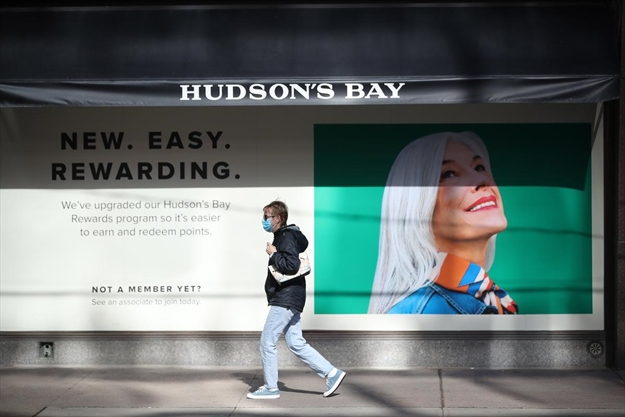Two landlords for Canada’s iconic Hudson’s Bay Company allege the 350-year-old retailer hasn’t paid rent on multiple properties since the began, and have begun legal proceedings to get their money from the struggling retail giant.
According to court filings by Oxford Properties brought against HBC for two of its locations in Quebec — Galeries de la Capitale in Quebec City and Les Promenades in Gatineau — HBC advised Oxford in September that it should not expect rent payments for eight of 11 properties it rents from the developer “any time soon.”
HBC has continued to pay rent “under protest” at three of its Oxford-owned locations, the court filings state. Oxford would not confirm the locations of these stores.

Oxford and real-estate investment trust Cominar are requesting “safeguard orders” for a total of five properties between them. If successful, the court would order HBC to pay what it owes, as well as to continue paying rent as required by the lease. Cominar is also applying to evict HBC from three locations.
In an email, an HBC spokesperson said Oxford and Cominar are “refusing to do their fair share” and “ambushed” the retailer with litigation “despite their own inability to meet their contractual lease obligations.”
“Like so many retailers across Canada, Hudson’s Bay is being negatively impacted by COVID-19. In the face of this extraordinary challenge, a significant number of our landlords have agreed to make reasonable accommodations that serve our mutual long-term interests,” the spokesperson said.
“We will present our position in court and are confident we will prevail.”
In 2006, HBC was sold to American businessman Jerry Zucker, and then two years later to the American private equity firm that owned luxury department store chain Lord & Taylor. It went public in 2012, then became private again in early 2020.
HBC pays around $220,000 monthly in rent and other costs at Galeries, and close to $150,000 monthly at the Gatineau location, according to the court filings, which say HBC owes more than $2 million to Oxford in unpaid rent for the two properties in question.
The filings, which allege HBC hasn’t paid rent at these properties since April, state that Oxford asked HBC for more information about its finances as an avenue to providing rent relief, but that HBC would not provide the information.
“It appears that HBC’s true intention is to take advantage of the current challenging times to occupy and carry on business from the leased premises rent-free as long as possible,” the court filings state.
In an emailed statement, Oxford spokesperson Daniel O’Donnell said Oxford is doing everything it can to help its tenants, and has “successfully partnered with hundreds of retailers across Canada to restructure leases and provide rent relief.”
“HBC continues to ignore multiple requests to enter into a constructive dialogue to find a mutually agreeable arrangement,” O’Donnell said. “As HBC has indicated it will also continue to refuse to pay rent in the future, Oxford, together with the shopping centres’ co-owners, are left with little choice other than to pursue legal action.”
Cominar is attempting to evict HBC from three of its Quebec locations, court filings show, and is also applying for a safeguard order to obtain unpaid rent for the three properties. Cominar declined to comment.
Bruce Winder, retail analyst and author of the book “Retail Before, During & After COVID-19,” said HBC was struggling before the pandemic. The department-store sector was largely in decline, he said, except for higher-end retailers.
The company was “caught” by the pandemic with too many stores and not enough online infrastructure, Winder said, adding while he believes HBC will weather this storm, it will resurface a much different company.
He said HBC will likely sell off many of its assets and move out of suburban areas to focus on its historic downtown locations.
In May, the retailer announced it would soon close its location in downtown Edmonton after more than 200 years there, and in October it announced it would do the same with its downtown Winnipeg location.
Retail analyst Lisa Hutcheson said she thinks there is a place for brick-and-mortar stores in the post-COVID-19 retail world, but that companies will be looking to create experiences that will convince shoppers to shop in person.
Winder said he believes HBC may use the proceeds from shrinking its brick-and-mortar footprint to boost its online shopping presence, which is not as strong as some other retail giants.
“That is an absolute no-brainer,” he said. “Online has made a quantum leap forward.”
Rosa Saba is a Calgary-based business reporter for the Star. Follow her on Twitter:
